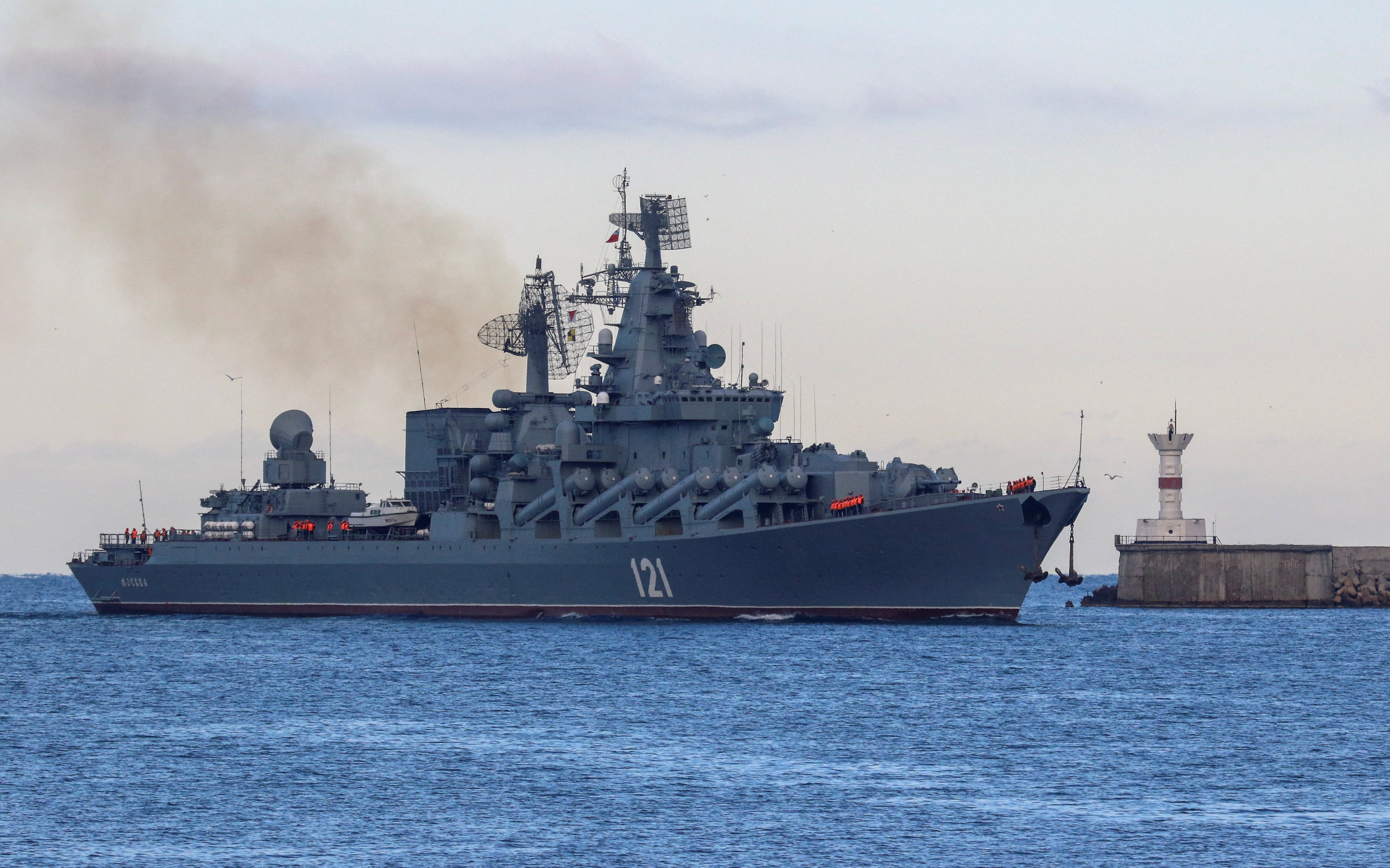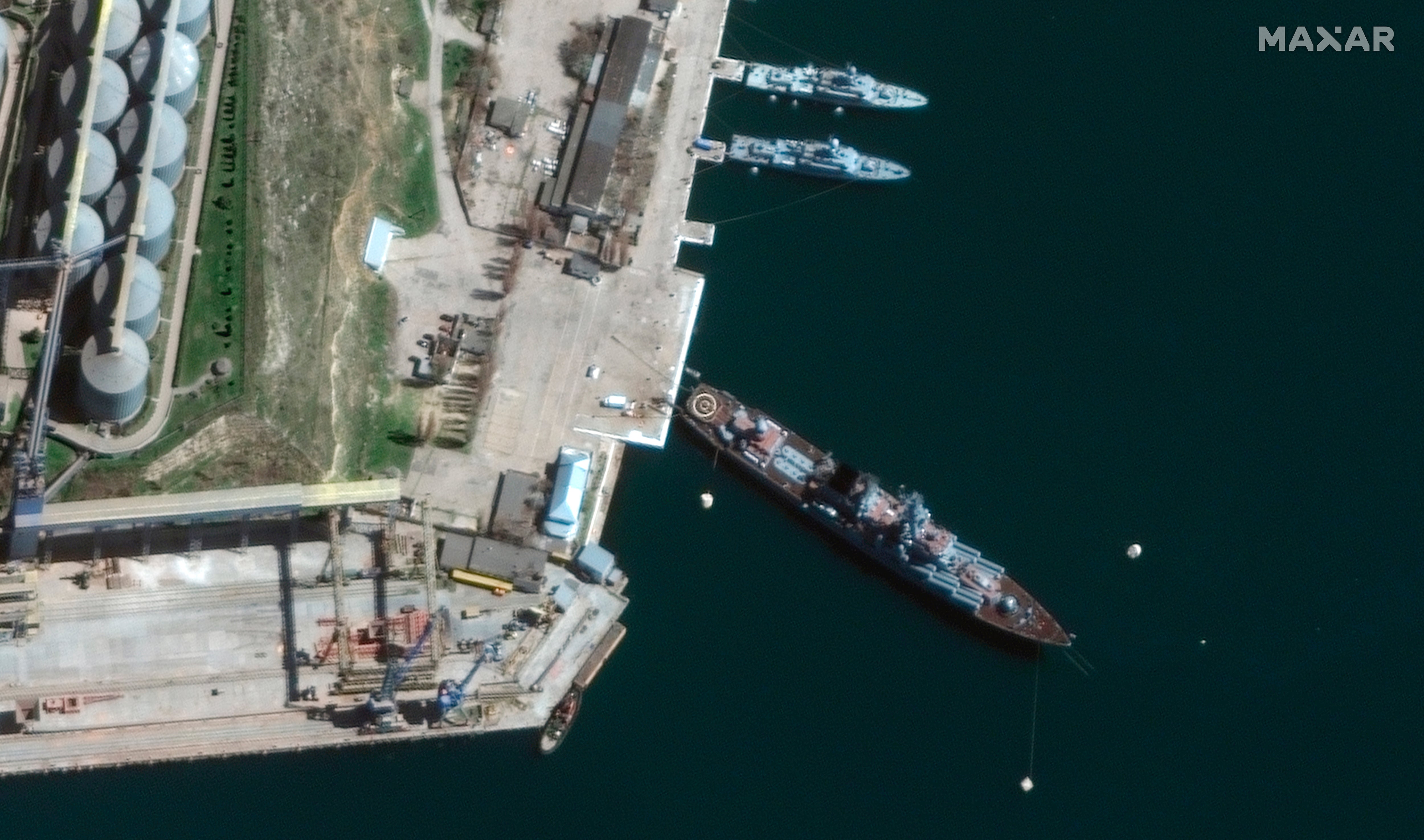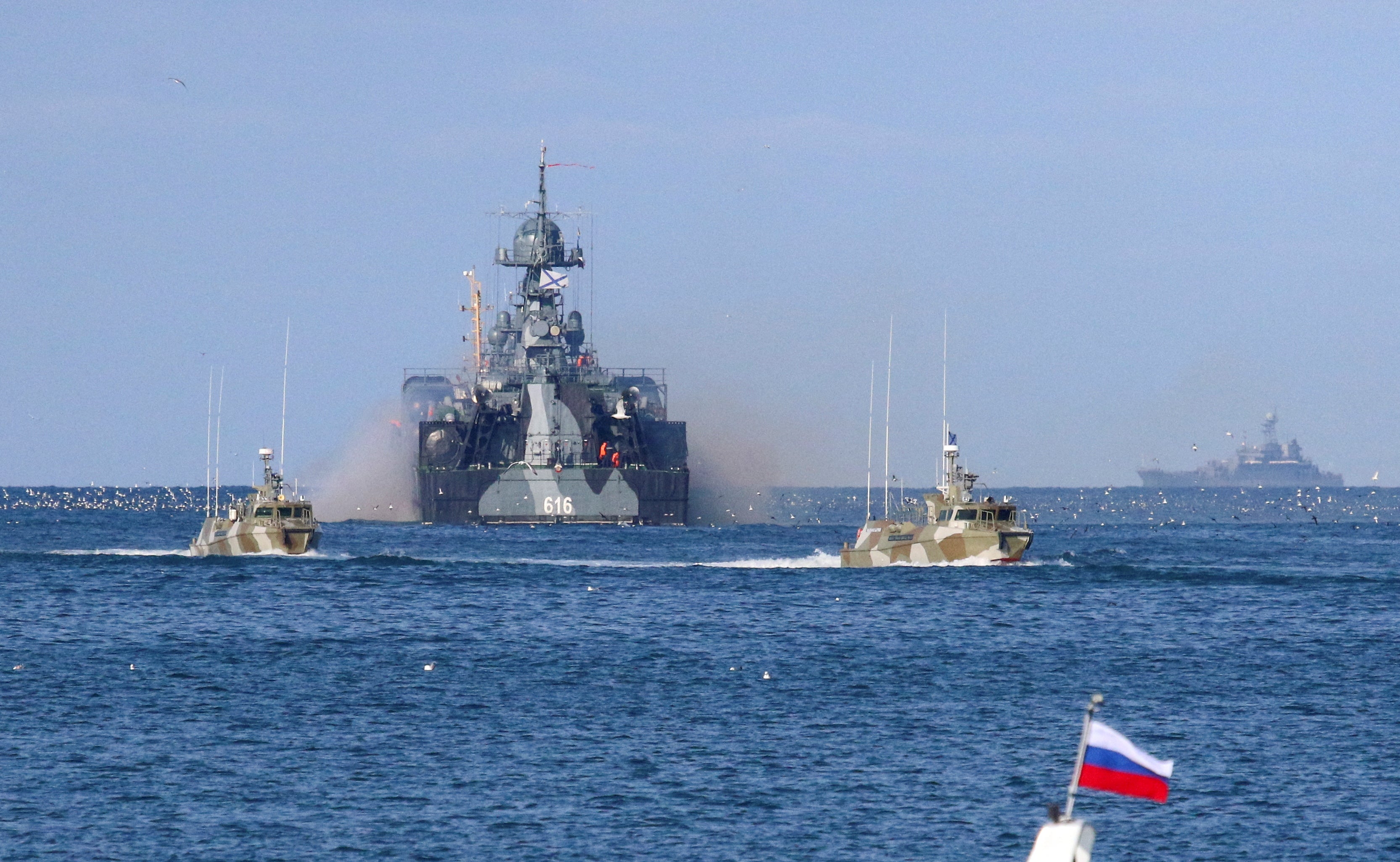Moskva: What happened to the Russian warship that was involved in Snake Island attack
Moskva is the ship Ukrainian soldiers on Snake Island told to “go f**k yourself” soon after Russia invaded
Your support helps us to tell the story
From reproductive rights to climate change to Big Tech, The Independent is on the ground when the story is developing. Whether it's investigating the financials of Elon Musk's pro-Trump PAC or producing our latest documentary, 'The A Word', which shines a light on the American women fighting for reproductive rights, we know how important it is to parse out the facts from the messaging.
At such a critical moment in US history, we need reporters on the ground. Your donation allows us to keep sending journalists to speak to both sides of the story.
The Independent is trusted by Americans across the entire political spectrum. And unlike many other quality news outlets, we choose not to lock Americans out of our reporting and analysis with paywalls. We believe quality journalism should be available to everyone, paid for by those who can afford it.
Your support makes all the difference.Russia’s Moskva cruiser, the flagship of its Black Sea fleet, has been badly damaged - prompting an evacuation of its crew after Ukrainian officials said it had been hit by a missile strike.
Moscow has acknowledged the incident but said only that ammunition on board had blown up after a fire, and the cause was being investigated.
"As the result of a fire on the Moskva missile cruiser, ammunition detonated. The ship was seriously damaged," the Russian defence ministry said in a statement. "The crew was completely evacuated."
A Ukrainian official earlier said the Moskva had been hit by two Neptune anti-ship missiles but did not give any evidence.
What is the Moskva?
The Moskva, commissioned in 1982, was armed with 16 anti-ship "Vulkan" cruise missiles with a range of at least 700 km. It was originally called "Glory” and is one of three Slava-class guided-missile cruisers. Its home port is Sevastopol on the illegally annexed Crimean peninsula.
In April 2021, the Interfax news agency quoted a retired Russian admiral as saying the 12,500-tonne vessel, which usually has a crew of around 500, was "the most serious ship in the Black Sea".

The warship is said to be carrying 64 S-300F Rif air defence missiles, making it an important component of Russia’s air defence over southern Ukraine.
“These long-ranged weapons allow her to cover most of the northern black sea from her patrol areas,” Naval News reported.
H I Sutton, a defence analyst, said the “close-in defences on this ship”, which should have protected it from a missile strike, “were dated”.
He added that the vessel “had been operating in relatively predictable patterns in the Northern Black Sea” but had recently had a large white number removed from its side to make it harder to identify.
What happened at Snake Island?
During the early stages of the war in February, a group of Ukrainian soldiers posted to Snake Island, known as Zmiyyny, in the Black Sea, refused to surrender, telling an approaching Russian warship - the Moskva - to “go f*** yourself”.
Although Ukrainian officials initially said all 13 guards had died in the subsequent Russian attack, Ukraine’s president Volodymyr Zelensky later said some of them survived.

They were captured after a Russian military vessel arrived at the island, told the guards to lay down their weapons and warned they would be “bombed”, according to audio clips picked up by local media and shared online.
Two Ukrainian guards were then heard saying “should I tell them to go f*** themselves?” before responding: “Russian warship, go f*** yourself.”
Commenting on reports of the missile strike on the Moskva, Maksym Marchenko, governor of the region around the Black Sea port of Odesa, said: "It has been confirmed that the missile cruiser Moskva today went exactly where the border guards on Snake Island told it to go.”
What does it mean for Russia's Navy?
The blast is the latest in a string of significant military setbacks for Russia since its stalled invasion was launched on 24 February.
Last month Ukraine said it had destroyed a large Russian landing support ship, the Orsk, on the smaller Sea of Azov to the northeast of the Black Sea.

But Russia still has a large fleet of cruisers, frigates, missile corvettes and amphibious landing ships operating off southern Ukraine.
A report last month suggested there were more than 30 Russian vessels active in the Black Sea area, with some deployed from their usual home in the Arctic and Baltic regions.
Mr Sutton - the defence analyst - said last month that Russia had amassed a naval force in the Black Sea “much larger than the traditional Black Sea Fleet” which was “centred on amphibious warfare capabilities, meaning landing troops and supplies”.
He added: “Just like analysts counting trucks and hospitals on land before the invasion, naval analysts watch the auxiliaries. These less well known ships are often overlooked but are important.”




Join our commenting forum
Join thought-provoking conversations, follow other Independent readers and see their replies
Comments